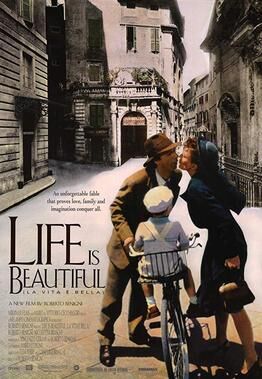Religion
The Psychology of Religion: Do You See What I See?
Examining religion and spirituality with a psychological mindset.
Posted December 12, 2021 Reviewed by Tyler Woods
"Said the night wind to the little lamb
Do you see what I see?
Way up in the sky, little lamb
Do you see what I see?"
– Lyrics from the Christmas song, Do You Hear What I Hear, by Noël Regney & Gloria Shayne
Is there an intelligent way to pursue questions about God and the existential mysteries of life and death?
In a New York Times piece about religion and spirituality last summer, Ross Douthat suggested that even in an era when science has the upper hand on religion, the world contains "so many signs of a higher order of reality... [and] experiences described as 'mystical' or 'numinous,'" that we remain unwilling to extinguish a belief in the supernatural. The problem, however, is that most of these experiences happen only to single individuals, within the subjective realm of existence, and therefore the rest of us must take it on faith that these experiences occurred at all, much less in the way they were described. But what if you haven't had one of these experiences?
Below is a picture with a hidden 3D image embedded within. I can see it. Do you see it?

The image above is called a 3D stereogram, and in an article I posted last year on this topic, I showed a different 3D stereogram and invited readers to email me (MindCube3D@gmail.com) to determine whether they saw the 3D image correctly. Hundreds of readers emailed me and many of you were able to see the hidden image immediately. Some of you, however, were only able to see the image correctly after I provided you with some tips to inform your practice. But others, unfortunately, were never able to see the hidden image, even with my advice and a lot of practice.
The result of last year's 3D stereogram experiment was reminiscent of the way enlightenment is discussed in Zen Buddhism. In Zen, there are two main traditions: the Rinzai school and the Soto school. According to neuroscientist James Austin, author of Zen and the Brain, adherents of the Rinzai school believe that enlightenment at all levels is a sudden process that can happen at any time, while those of the Soto school believe that enlightenment is a gradual awakening of deeper realization which occurs with regular practice in zazen (i.e., meditation).
My purpose for using a 3D stereogram in each of these articles is to create a metaphor for a spiritual experience. As with the content of a spiritual experience, if someone you know is able to see the hidden 3D image, but you are not, you can either choose to reject the idea that it's there at all or, take its existence on faith. For some people, that faith then leads them to invest their time and energy into a practice, with the hope that their faith and their practice will yield a spiritual reward.
Is this psychologically rational? Is there a psychological benefit to believing–in God, the existence of the soul, or some sort of existence beyond this current life–even if one does not see any immediate evidence?

In the 1997 film, Life is Beautiful, Roberto Benigni plays a Jewish Italian shopkeeper during WWII named Guido who is sent to a concentration camp along with his young son Giosuè. In an effort to save Giosuè's psyche from the horrors of the camp, Guido tells Giosuè that he and the others at the camp are players in a game, and he can win a big prize at the end if he earns enough points by following his father's directions: directions actually meant to keep Giosuè alive and safe in the camp. Guido's game is a ruse, but it helps to keep Giosuè distracted enough from the horrors around him so that he's motivated to push himself through, day-after-day, long enough to be rescued by the American soldiers that eventually liberate the camp. Guido, however, is not so lucky, but the ruse of his game achieves its goal nonetheless.
What are we to make of Guido's game? Are religion and spirituality "games" as well, built on a similar ruse that doing the right thing long enough will buy us time until we can see the truth for ourselves and that seeing the truth in the end will ultimately set us free?
As an adult, Guido was able to fully see what was really going on around him in a way that Giosuè was not, and he wagered that the benefits of giving his son an altered truth outweighed the costs. When it comes to religion and spirituality, many are fortunate to have seen, by virtue of their 'mystical,' 'numinous,' or satori experiences, and after having seen it's much easier for them to maintain a commitment to a religious or spiritual practice. But if you have not yet seen, do the psychological benefits of a religious or spiritual approach to life outweigh the costs?
What might Guido and Giosuè say?
What do your experiences with the 3D stereograms reveal to you?
Do you see what I see?
References
Austin, J.H. (1998). Zen and the Brain, Massachusetts Institute of Technology, Cambridge, MA


